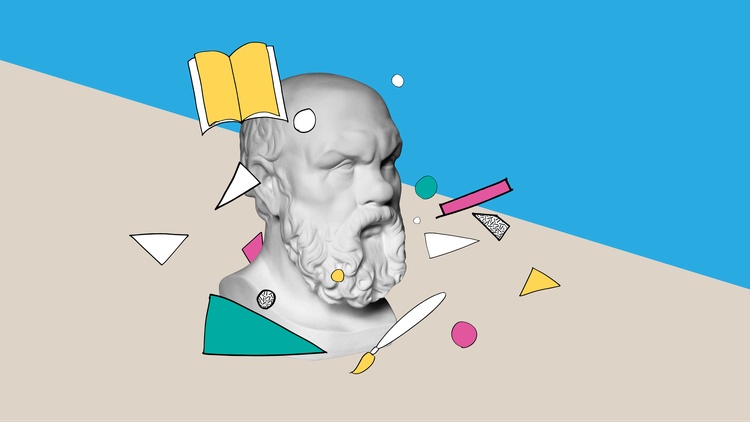
Call for papers for the International scientific conference “Impacts of Arts and Cultural Education: Arguments and Evidence“
The conference will take place on March 19–21, 2020 in Riga.
In the last two decades, considerable evidence has been accumulated on the multiple benefits of cultural and art education for children, young people and adults – contributing to their innovation capacity, creativity, collaboration and critical thinking skills, improving mental health of individuals, cohesion of communities and more. Arts and cultural education is increasingly discussed not only in terms of intrinsically valuable personal development of individuals, but as a broader societal issue, e.g. of social justice: as a right to equal access to opportunities vital for life and work in the 21st century.
However, access to high quality cultural and arts education differs across countries. It is precisely that part of the education system, which tends to suffer cuts whenever political decisions have to be made on resource allocation. Therefore, it is critical that scholars, makers of cultural policy and practitioners constantly revisit the role of arts and cultural education, seeking the strongest arguments and evidence for the development of arts and cultural education. It is necessary to highlight tools that enable equal access to its opportunities, and content that furthers the attainment of goals that are vital to individuals and societies, as well as effective ways of communicating the outcomes of arts and cultural education to the relevant stakeholders.
On March 19, 2020, Latvian representatives of ENO (The European Network of Observatories in the Field of Arts and Cultural Education) – Latvian Academy of Culture, Latvia University Department of Education, Psychology and Art, and the Latvian National Centre for Culture in collaboration with the Latvian National Commission for UNESCO and the Embassy of Canada to Latvia convene the international scientific conference “Impacts of arts and cultural education: arguments and evidence”. The goal of the conference is to explore and highlight the multiple benefits and roles of arts and cultural education on individual, community and national level. Scholars from many countries, as well as Latvian cultural policy makers and practitioners of cultural and arts education will share ideas and conclusions on the theoretical, practical and communication aspects of arts and cultural education. The conference programme will include keynotes from internationally recognised scholars and practitioners, as well as panel discussions and workshops facilitating an exchange of ideas on many levels. One of the confirmed keynote speakers is Prof. Peter Gouzouasis of the University of British Columbia, Faculty of Education.
The international programme committee of the conference welcomes submissions – both research- and practice based, in English or Latvian, on one of the following thematic strands of the conference:
- The diverse impacts and roles of arts and cultural education (social, cultural, economic, individual, collective, etc.);
- Effective communication of the impacts of arts and cultural education to the general public and cultural policy-makers;
- Assessment of specific policy instruments or initiatives in cultural and art education.
Researchers, practitioners and policy makers are invited to apply for the conference by electronic form (available here: http://ejuz.lv/applyfortheconference) and select the option of either presenting a paper or attending without it.
Presenters of conference papers will have to choose between a 30-minute presentation at the plenary, or a shorter one at the start of a workshop. The deadline for the conference applications and paper submissions is January 17th, 2020.
The international programme committee will consider the submitted abstracts on the basis of their scholarly merit and thematic relevance for the conference, and notify the authors by e-mail by February 10, 2020. The conference participants without paper submissions will be also informed of their acceptance by February 10, 2020. The number of participants is limited by the capacity of the conference venue.
After the conference, the authors will be able to submit their papers for publication in the peer-reviewed open access scientific journal “Culture Crossroads” by the Latvian Academy of Culture (visit http://www.culturecrossroads.lv/), indexed by EBSCO (Humanities Source Ultimate), ULRICH'S and Central and Eastern European Online Library (CEEOL).
Participation in the conference is free of charge. The conference programme includes a visit to a national cultural institution and a reception on the evening of March 19th, 2020, and will be followed by two member meetings: ENO meeting on March 20–21, 2020 and ACEnet (a network of European policy makers, civil servants and academics working in the fields of arts and cultural education) meeting on March 18 (afternoon) and March 20, 2020.
In case of any questions, please, contact Baiba Tjarve, senior researcher at the Latvian Academy of Culture, baibatj@gmail.com
The international programme committee of the conference is as follows:
- Anda Laķe, Latvian Academy of Culture, professor, head of the Research Centre and vice-rector for science
- Baiba Tjarve, Latvian Academy of Culture Research Centre, lead researcher
- Ilona Kunda, Latvian Academy of Culture Research Centre, lead researcher
- Austra Avotiņa, University of Latvia Department of Education, Psychology and Art, head of Art and Technology Chair
- Baiba Moļņika, Latvian National Commission for UNESCO, Secretary General
- Ernst Wagner, Academy of Fine Arts Munich, Professor
- Lígia Ferro, Universidade do Porto, Faculdade de Letras, Assistant Professor
- Charlotte Svendler Nielsen, University of Copenhagen, Associate Professor, Chair of The European Network of Observatories in the Field of Arts and Cultural Education (ENO)
Conference working languages: English and Latvian (simultaneous translation provided at the plenary).
The conference is supported financially from the EU Structural project “Support for International Collaboration Projects in Research and Innovation” (1.1.1.5./18/I/017).


